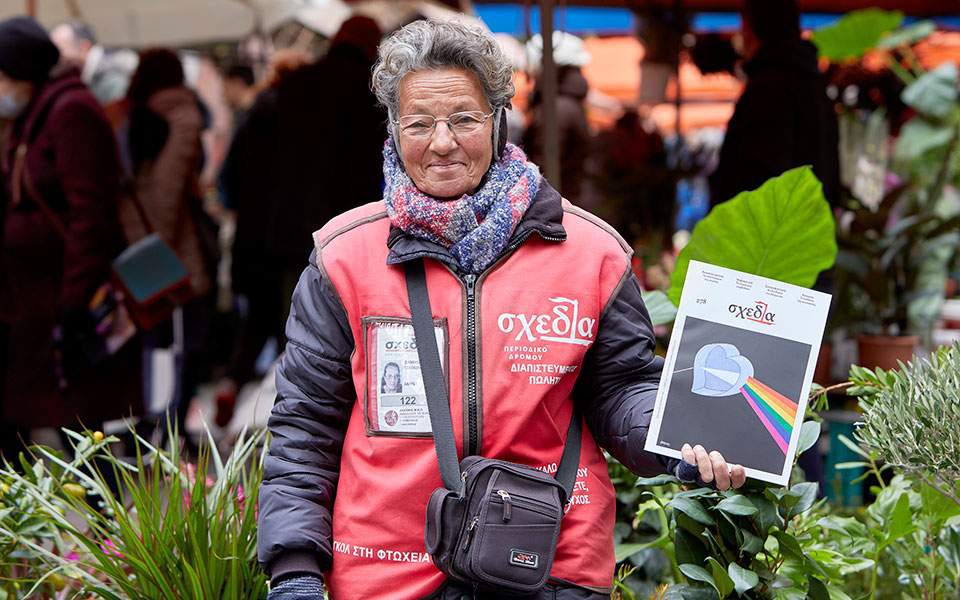Greece’s street magazine Shedia has set out a plan to support its sellers now that the measures taken to halt the spread of the new coronavirus in the country have taken a toll on its sales or shut down soup kitchens on which homeless and vulnerable individuals depended on.
For the first time since its launch in 2010, the magazine will be issued only through subscription in April, available on its website www.shedia.gr, instead of being distributed by sellers in the streets, “for the first and, we hope, the last time,” says Christos Alefantis, the magazine’s editor in chief.
The seven-point plan includes introducing a subscription (16 euros for four months or 8 euros for the two-month package, with 50 percent of the proceeds going to the sellers); food coupons in consultation with supermarkets; the delivery of food and other necessities to the places where the magazine’s sellers reside (many of whom belong to high-risk groups); providing entertainment such as a TV, a radio, books, a deck of cards, knitting material, or a diary; providing sellers with a means for communication such as prepaid phones; companionship by showing interest in their situation; and cooking and distributing food for the most vulnerable.
“For many people, these days are not ones of self-isolation, but of a [new] hard exclusion, which, for many people of Shedia in particular, awakens nightmares from their [very recent] past,” Alefantis explains, noting that the paper has been receiving calls from people who need food or even a shelter.
“Just when people had found some relief, a way to not only to secure five, ten euros a day, but above all, to remain active, visible, to maintain the hope that they will be able to take life back into their own hands, suddenly they are ‘withdrawn’ again either in a hostel or in a damp apartment in Neos Kosmos, Attiki square or Nikea without electricity.”
This article was first published in ekathimerini.com












